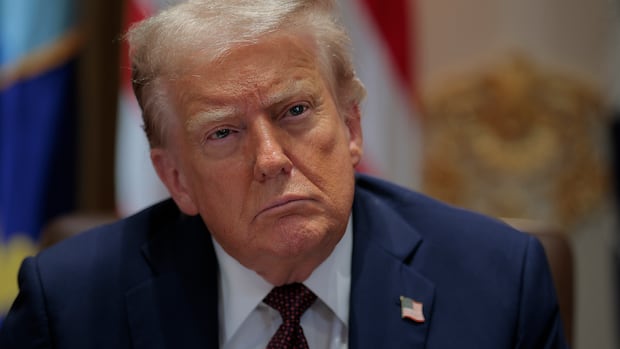Supreme Court will hear challenge to Trump's tariffs in November

The U.S. Supreme Court has agreed to decide the legality of Donald Trump's sweeping global tariffs, setting up a major test of one of the Republican president's boldest assertions of executive power that has been central to his economic and trade agenda.
The justices took up the Justice Department's appeal of a lower court's ruling that Trump overstepped his authority in imposing most of his tariffs under a federal law meant for emergencies. The court swiftly acted after the administration asked it last week to review the case, which implicates trillions of dollars in customs duties over the next decade.
The court, which begins its next nine-month term on Oct. 6, placed the case on a fast track on Tuesday, scheduling oral arguments for the first week of November.
The U.S. Court of Appeals for the Federal Circuit in Washington ruled 7-4 last month that Trump overreached in invoking a 1977 law known as the International Emergency Economic Powers Act, or IEEPA, to impose the tariffs. The tariffs, however, remain in effect during the appeal to the Supreme Court.
The appeals court ruling stems from two challenges. One was brought by five small businesses that import goods, including a New York wine and spirits importer and a Pennsylvania-based sport fishing retailer. The other was filed by 12 U.S. states, most of them currently governed by Democrats.
The Supreme Court also agreed to hear a separate challenge to Trump's tariffs brought by a family-owned toy company.
Trade deficits, drug flow into U.S. cited by White HouseThe levies are part of a global trade war instigated by Trump since he returned to the presidency in January that has alienated trading partners, increased volatility in financial markets and fuelled global economic uncertainty.
Trump has made tariffs a key foreign policy tool, using them to renegotiate trade deals, extract concessions and exert political pressure on other countries. Trump invoked the 1977 law in April to impose tariffs on goods imported from individual countries to address trade deficits, as well as separate tariffs announced in February as economic leverage on China, Canada and Mexico to curb the trafficking of fentanyl and illicit drugs into the U.S.

The law gives the president power to deal with "an unusual and extraordinary threat" amid a national emergency. It historically had been used for imposing sanctions on enemies or freezing their assets. Prior to Trump, the law had never been used to impose tariffs.
"The fact of the matter is that President Trump has acted lawfully by using the tariff powers granted to him by Congress in IEEPA to deal with national emergencies and to safeguard our national security and economy. We look forward to ultimate victory on this matter with the Supreme Court," White House spokesperson Kush Desai said.
Jeffrey Schwab, a lawyer with the Liberty Justice Center legal group representing small business challengers to Trump's tariffs, said he is confident the Supreme Court will recognize the president does not have unilateral tariff power under this law.
"Congress, not the president alone, has the constitutional power to impose tariffs," Schwab said.
Trump's Justice Department has argued the law allows tariffs under emergency provisions that authorize a president to "regulate" imports.
Denying Trump's tariff power "would expose our nation to trade retaliation without effective defences and thrust America back to the brink of economic catastrophe," it said.
Trump has said that if he loses the case, the U.S. might have to unwind trade deals, causing the country to "suffer so greatly."
The nonpartisan Congressional Budget Office reported in August that the increased duties on imports from foreign countries could reduce the U.S. national deficit by $4 trillion over the next decade, though many economic analysts say American consumer and businesses will be adversely affected through eventual higher prices.
At least 8 lawsuits on tariffsThe U.S. Constitution grants Congress, not the president, the authority to issue taxes and tariffs, and any delegation of that authority must be both explicit and limited, according to the lawsuits.
At least eight lawsuits have challenged Trump's tariff policies, including one filed by the state of California.

Tim Brightbill, an expert in international trade law at the Wiley Rein law firm, said that only a handful of trade law cases have gone to the Supreme Court, "so it just shows the extreme importance of this issue across the U.S. economy, and really the global economy."
cbc.ca




